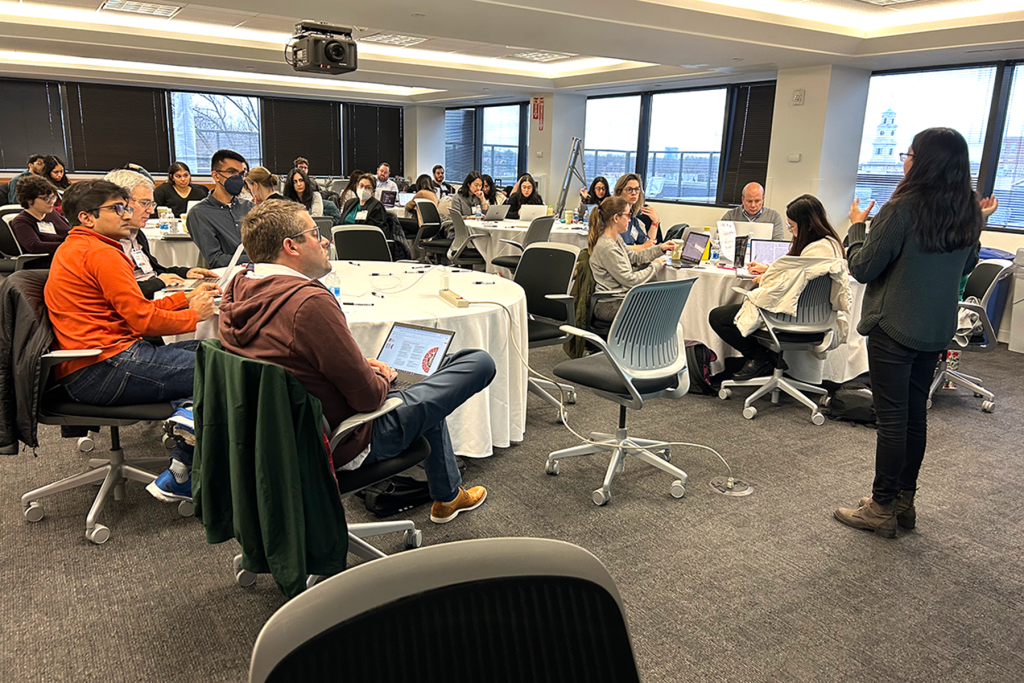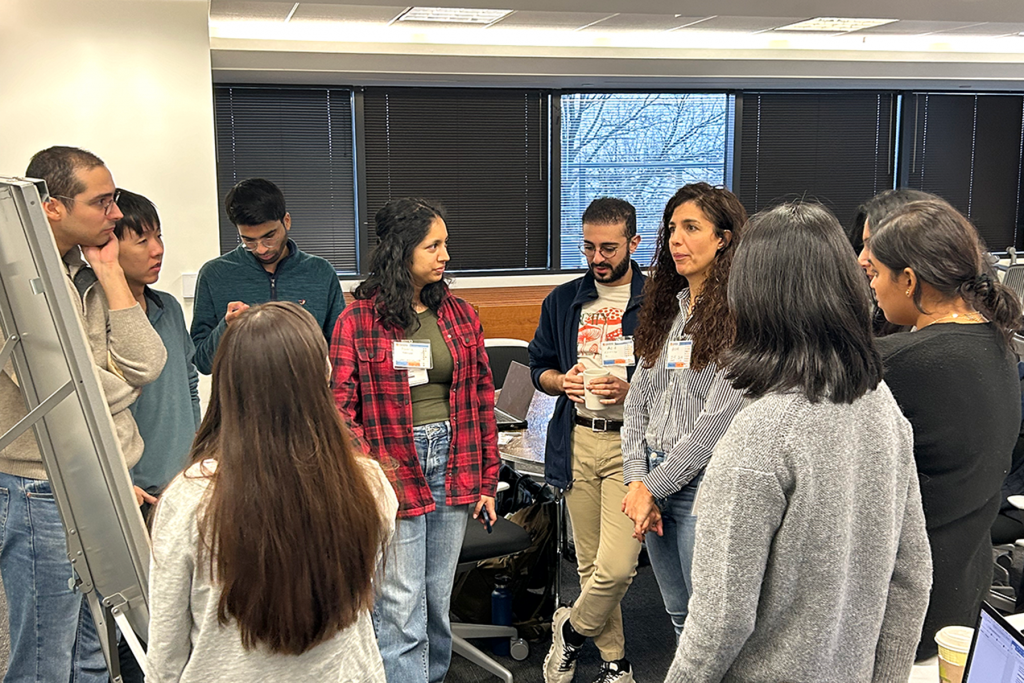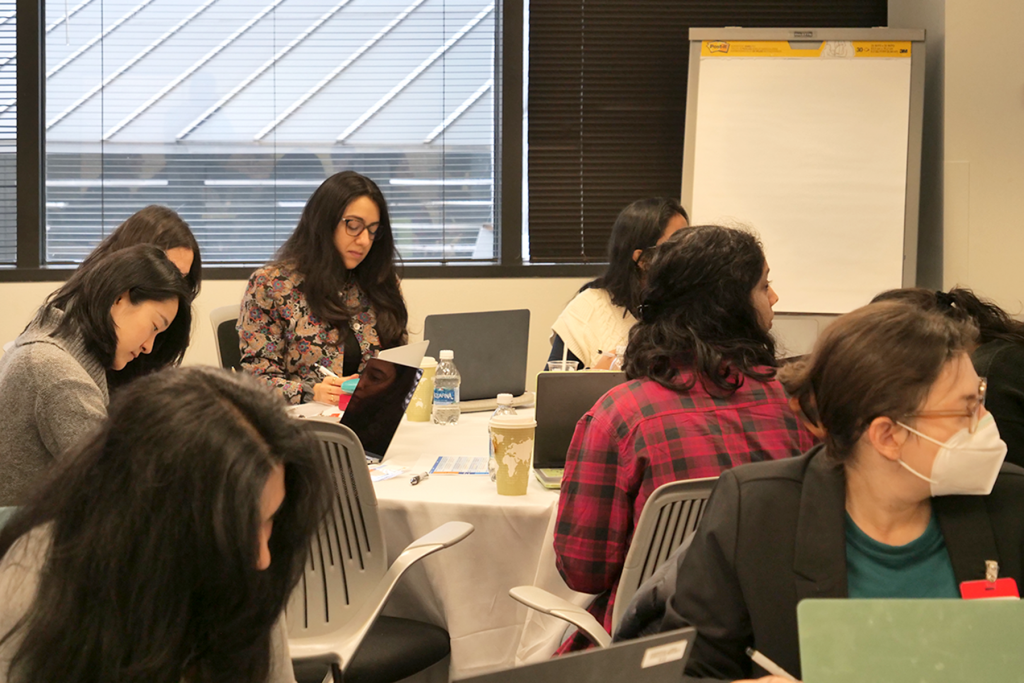Can Observational Health Data Generate New Evidence in Women’s Health? DBMI Trainees, Faculty Research Understudied Women’s Health Conditions During Recent Studyathon
Women’s health has historically been understudied in medical research. The Department of Biomedical Informatics (DBMI) at Columbia University recognizes the need to generate greater scientific evidence to advance the health of women, empower women, and support shared decision-making with their providers.
Recently, DBMI trainees and faculty collaborated in a three-day studyathon to research both conditions in an attempt to bridge the real-world evidence gaps. They focused on two conditions: endometriosis and polycystic ovary syndrome (PCOS). Both affect the female reproductive system, causing menstrual irregularities and fertility problems, but are also systemic, with major impact on patients’ lives such as debilitating pain and metabolic issues. Both conditions are prevalent (8-10% of women in reproductive
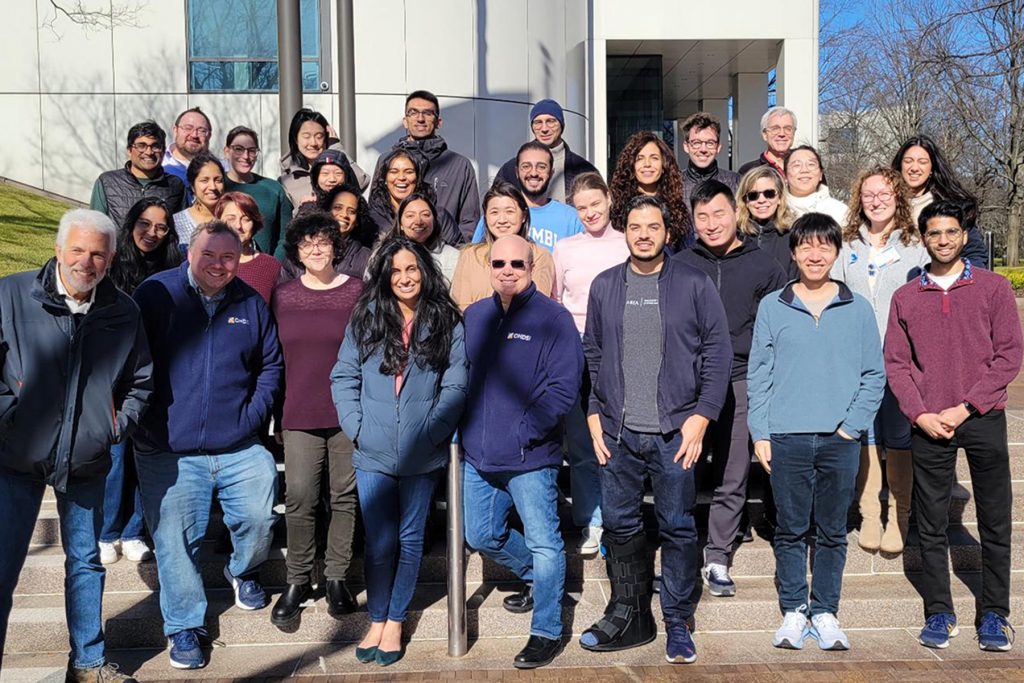
age estimated forPCOS, and 6-10% for endometriosis), yet research has been historically very limited compared to other health issues.
DBMI researchers joined members of the OHDSI community, a global open-science network of researchers, clinicians, and industry professionals who collaborate to generate evidence from real-world data that promotes better health decisions and better care. Centrally coordinated at Columbia University, OHDSI has brought together nearly 4,000 researchers and has mapped more than 950 million deidentified patient records — nearly 12% of the world’s population — to the OMOP Common Data Model.
“Leveraging all that OHDSI has to offer, from its global data to its systematic research methods and community-developed open-source tools, gives us the best chance to generate reliable evidence that may close some research gaps in women’s health,” said Noémie Elhadad, PhD, DBMI Chair and 2023 recipient of the AMIA Donald A.B. Lindberg Award for Innovation in Informatics. “It was energizing and inspiring to see how far we came together in three days of collaboration, and I have been especially proud of our trainees for taking leadership roles. We look forward to building on this necessary research and providing much-needed answers in women’s health.”
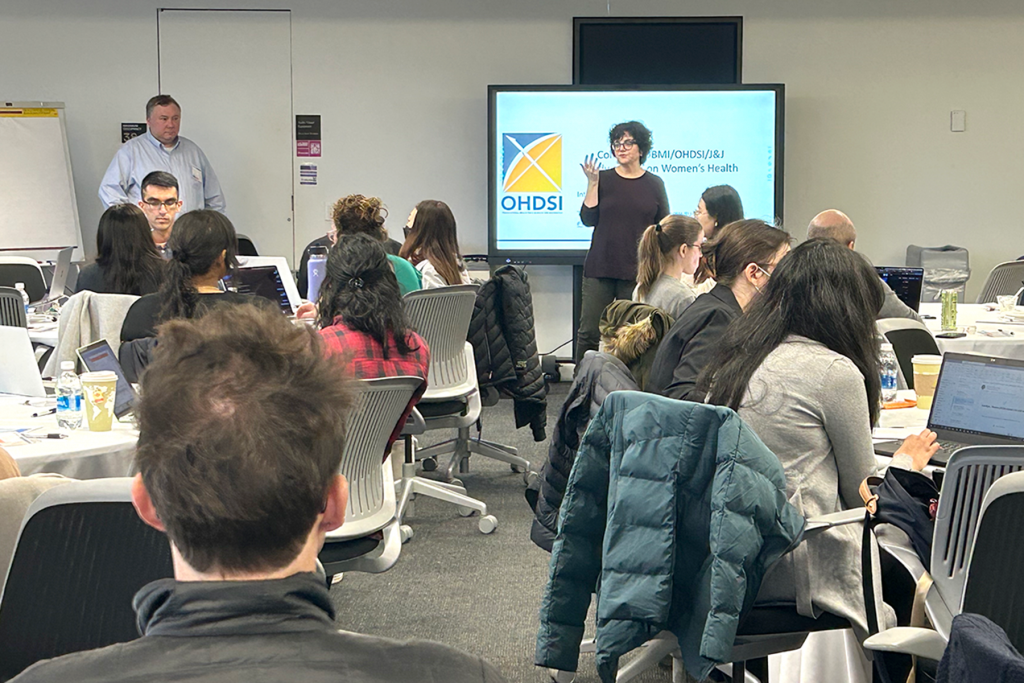
The team built a research foundation throughout the studyathon to identify research gaps on endometriosis and PCOS which observational health data and informatics methods can contribute to. The team focused on specific issues around endometriosis or PCOS like the alignment between guidelines and data observed in real-world practice, characterizing the variability of treatment patterns, and developing prediction models for the early detection of disease.
Disparities in women’s health research has received more attention recently, notably when the President and First Lady launched the White House Initiative on Women’s Health Research in November of 2023. The initiative goal is to fundamentally change how the country approaches and funds research on women’s health.
“The White House brought to light the importance of researching important, but severely understudied, women’s health issues. It was rewarding to see how far we could come in just three days and, more importantly, how much drive the team had to continue the work afterwards,” Elhadad said. “The OHDSI community has built a framework to generate important real-world evidence, and we hope to use this evidence to serve women who need this information most.”
These research initiatives build on one healthcare focus of the department, which is data-powered women’s health. Both faculty and trainees have led studies and initiatives on, among several topics, advancing knowledge of menstrual health and endometriosis. Work from the studyathon continues for the DBMI teams, which meet regularly to fill evidence gaps around these important issues.
